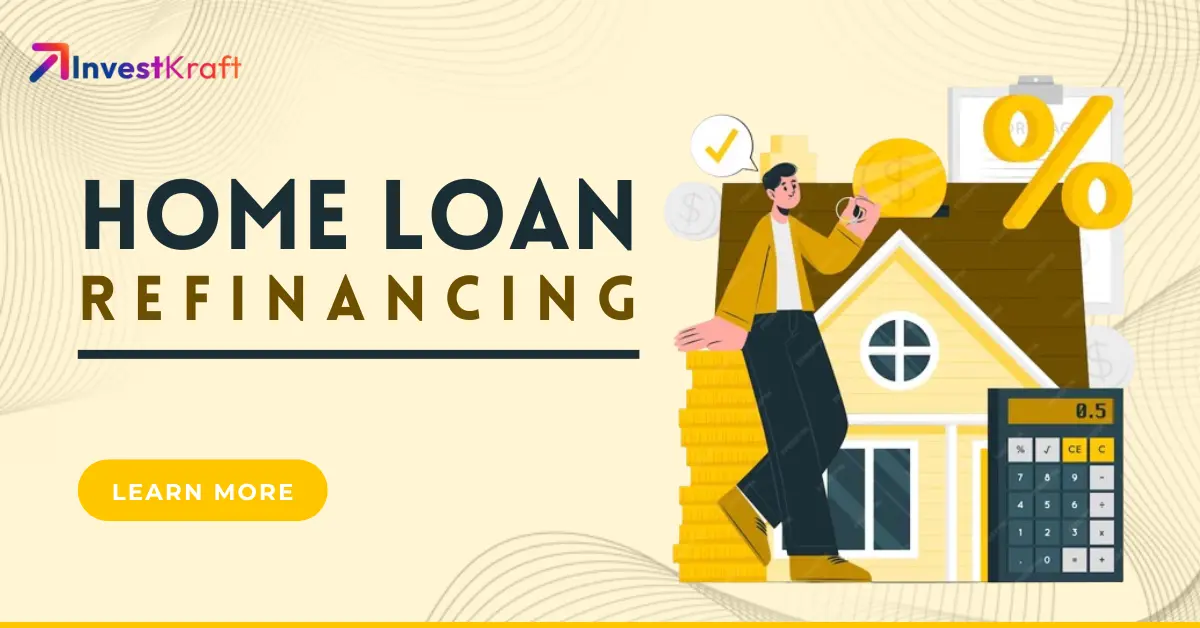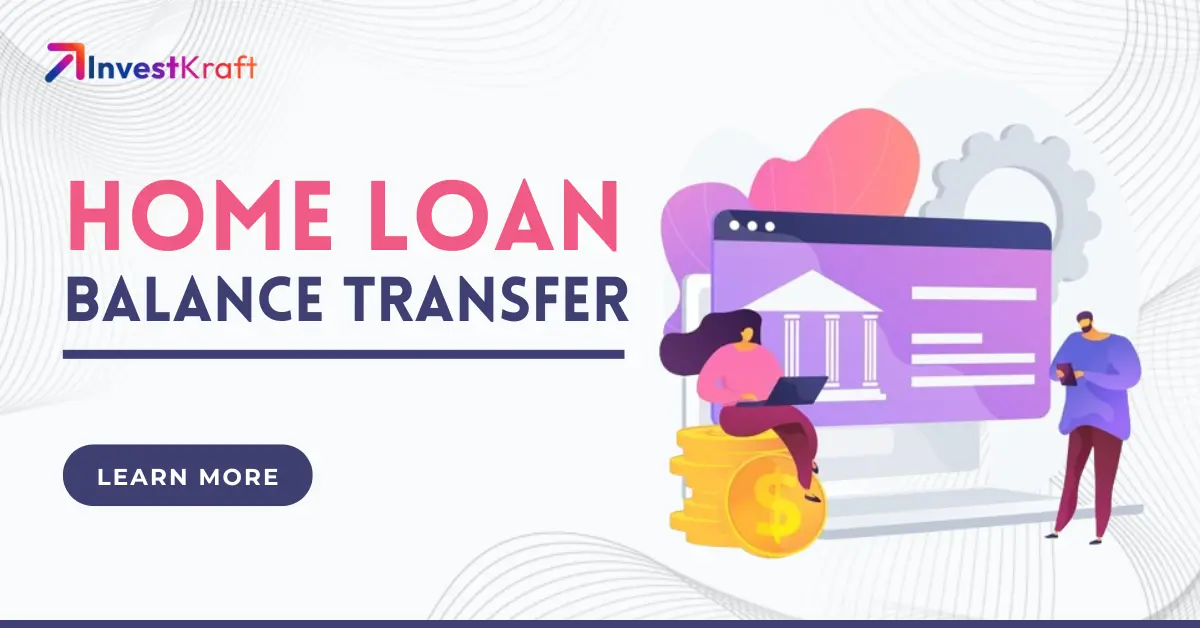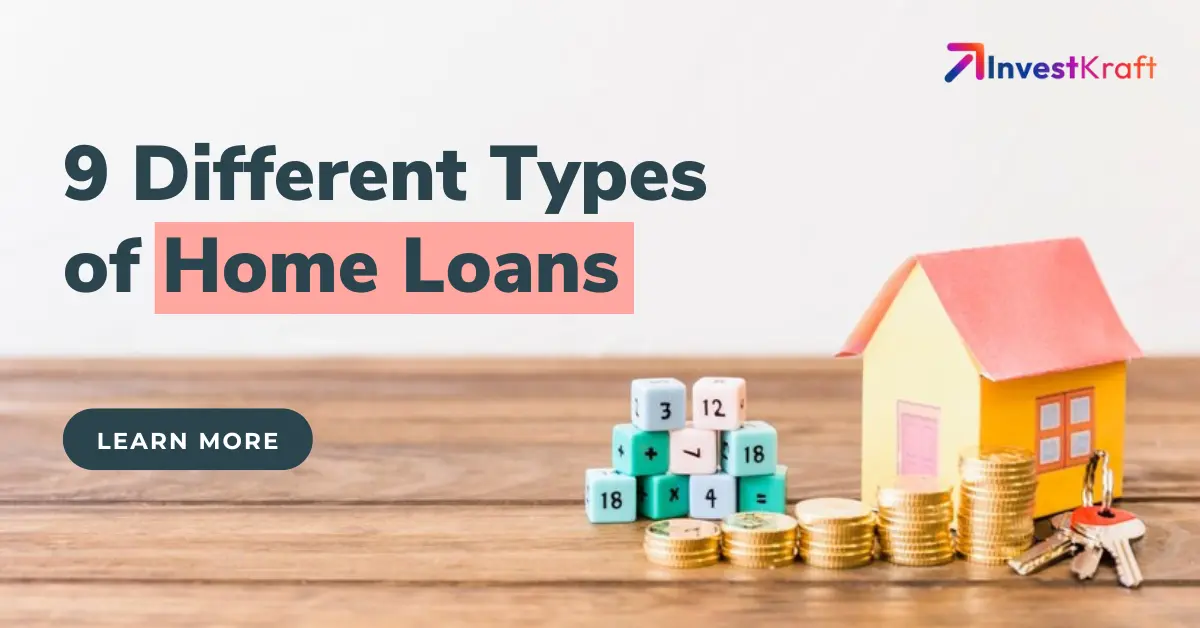Home Loan Refinancing: When is it a Good Idea?

What if you already have a home loan and are not fully satisfied with the amount you pay in the form of monthly instalments? Are you considering home refinancing which may seem a great idea? But, does it have all pluses? Should you refinance your home? This is a big question for a home loan borrower who can think of refinancing his home loan to get better interest rates in the form of a reduced EMI burden.
These days, the trend of home loan refinancing has become more common due to the competitive industry landscape and money lending organizations offering lucrative deals to borrowers. But whether you should refinance your existing home loan or not. We will delve deeper to know the truth in the further section of this post.
What is Home Loan Refinancing?
Also known as mortgage refinancing, a home loan balance transfer simply refers to the pending home loan balance from one lender to another lender. In most cases, home loan borrowers choose home loan balance transfer to reduce their EMI burden as the new lender may offer reduced interest rates.
Other than this, it’s also feasible to include or delete a joint name on the home loan in some cases. For example, if a person gets divorced or stays away from the individual they live with. Under home loan refinancing, it is completely possible to add another person’s name to the loan subsequently.
Now, coming back to our main question – is it good to refinance a home loan? Below are some of the major reasons why it is a good strategy.
What is the Importance of Evaluating Refinancing Options?
Understanding the importance of refinancing analysis is crucial before deciding to refinance your home loan. It involves comparing your current mortgage with the new one to assess the costs and benefits involved. By conducting a refinancing analysis, you can avoid costly mistakes and potentially save a significant amount in the future. Consider factors such as interest rates, closing costs and potential savings in your refinancing analysis.
- Calculate the break-even point by dividing closing costs by monthly savings. If the break-even point is greater than the time planning to stay at home, refinancing may not be worth it.
- Shortening the loan term pays off faster and saves on interest. Extending terms lowers payment and increases total interest. Weigh the pros and cons and choose what suits you.
- Choose the mortgage type that matches your risk tolerance and financial situation. Fixed-rate loans offer stable payments but may have higher rates. Adjustable-rate loans have variable rates but may increase over time.
- Equity affects refinancing by influencing the LTV (Loan to Value) ratio. A lower LTV improves the chances of lower interest rates and avoiding PM (Private Mortgage). PMI (Private Mortgage Insurance) is costly for those with less than 20% equity. Aim for 20% equity before refinancing or consider cash-in refinance.
- Your credit score is a numerical representation of your creditworthiness, based on your credit history and behaviour. Lenders use it to determine your interest rate and refinancing eligibility. A higher score means a lower rate and more options, while a lower score means a higher rate and fewer options. Check your score before refinancing and try to improve it by paying bills on time, keeping card balances low and avoiding new debt.
Types of Refinancing Options Available in the Market
In India, refinancing options are available for both personal loans and mortgages. Here are a few types of refinancing options to consider:
- Rate-and-term refinancing: In this form of refinancing, the existing loan is completely paid off and replaced with a new loan.
- Cash-out refinancing: In cash-out refinancing, the asset used as collateral allows the borrower to access the increased value or equity through a new and higher loan amount without the need to sell the asset. This provides an opportunity to leverage the growing value of the asset without having to part ways with it.
- Cash-in refinancing: It allows the borrower to pay off their loan by making payments at a reduced loan-to-value ratio or with smaller loan instalments. This can provide financial relief and potentially lower monthly payments for the borrower by reducing the overall amount owed on the loan.
- Streamline refinancing: This can expedite the refinancing process, offering borrowers the opportunity to secure lower interest rates and avoid uncertainties of adjustable rate mortgages or graduated payment mortgages. These types of mortgages carry the risk of significant interest rate hikes, which can lead to financial strain. As a result, many borrowers prefer to seek alternatives to escape the burdensome payments associated with these mortgages.
When Does Home Loan Refinancing Make Sense?
Refinancing a home loan may not be suitable for everyone as it depends on individual circumstances. Here are a few instances where home loan refinancing makes sense.
1. Reduced Interest Rate:
Loan refinancing rates rest on several factors existing in the economy such as RBI’s monetary policy, ongoing inflation, and others. If the interest rate on a home loan is more attractive than when the person opted for their existing home, it makes complete sense to refinance the home loan due to lower monthly loan instalments. Reduced loan refinance rates are meant to help loan taker keep their monthly EMI payments low. Moreover, they are likely to pay a curtailed total interest over the remaining loan tenure.
2. Change in Loan Type
A person who wants to borrow money to finance a property but finds that the floating rate of interest isn't the right choice for them has numerous options, which are inclusive of loans with fixed rates of interest. If they don't know about the upcoming interest rates in the future, a fixed-rate home loan locks in the existing interest rate so there is no chance of getting it increased in the future.
This type of loan may also be more advantageous if the borrower doesn’t intend to use the money for a long time, which is quite common with balance loans.
3. Change in Loan Tenure
Another major reason behind the decision to transfer the home loan is the need to change the loan tenure. The primary benefit of choosing a reduced loan term is the reduction in interest payments.
For example, a borrower who earlier had a 20-year loan may find himself capable enough to afford one with a larger EMI payment. So, to reduce his home loan refinance rates and pay less amount, he or she may choose to refinance his home loan to a 10-year term.
On the other side, a person can potentially have a cash flow disaster and choose a home loan with a longer term to make a lower monthly EMI payment.
4. Leverage Home Equity
If there has been an increase in the value of a home, the borrower could be able to borrow money for other elements like settling debts, home upgrades, or clearing other bills.
It may seem beneficial to have extra money on hand in the event of a cash-out refinance so that you can pay off any remaining balance on an existing house mortgage and benefit from reduced mortgage refinance rates. Additionally, borrowing money using cash from one's house entitles the borrower to significantly reduced refinancing rates compared to other types of loans. Tax consequences may come up from a cash-out refinancing transaction.
Documents Required for Home Loan Refinancing
To successfully refinance a home loan in India, you will generally need to gather several important documents. Now, for home loan refinancing, the set of required documents is different for salaried and self-employed borrowers respectively. Click on this link now to find out the comprehensive list of documents you must submit to apply for refinancing your home loan.
What are the Cons of Refinancing a Home Loan?
Home loan refinancing or mortgage refinancing has its drawbacks, particularly when considering the potential expenses involved. It is important to be aware of the cons of refinancing a home loan discussed in this section below.
- Expenses to Close a Deal: Refinancing a home loan incurs closing costs of around 2 to 6% of the new loan amount, including fees for appraisal, origination and lawyer. Negotiate fees and compare offers from different lenders to find the best terms.
- Possible Credit Score Impact: When you apply for refinance, the lender will check your credit report and decide if they want to work with you. This can lower your credit score for a few months. Your previous mortgage will also be shown as closed on your credit report, which may also lower your score. Account closure and hard inquiry are unavoidable when refinancing a home loan. Credit scores may improve with on-time payments towards new loans. Consider the effect of refinancing on your credit score when applying for other credit soon.
- Possibility of A Longer Loan or More Debt: Refinancing to a longer loan or cash-out may have a long-term impact. Longer loans may cost more due to interest, even with lower monthly payments. Cash-out may increase the debt-to-income ratio and affect future borrowing.
How Home Loan Refinancing Works?
The smoothest approach to home loan refinance or balance transfer is to ask your new lender to pay off your old lender's debts and overtake the remaining loan balance. Once you've chosen a lender with the desired terms and conditions, you may finish the necessary documentation and other procedures so that they can pay off your loan to your earlier lender and manage the remaining balance. Once this is done, you start stat paying EMIs as per the schedule set by your new loan lender.
The Conclusion
Are you looking to reduce your home loan EMI burden by choosing home loan balance transfer or refinancing? If yes, it is better to talk to experts like Investkraft. We have a team of home loan experts who can help you understand home loan balance transfers deeper and let you explore better home loan interest rates.
Verify Phone Number
Related Post

A Comprehensive Guide to Home Loan Eligibility for Salaried Individuals in 2024
When purchasing a new home, the costs involved can be quite high, necessitating the need for a home...
Read more...
Top 10 Best Banks for Home Loans
Looking to buy your first home? The process can be thrilling, tiring and a bit scary, especially in...
Read more...
10 Factors To Consider While Choosing Home Loan Balance Transfer
We have different needs and financial requirements in life for which we often apply for loans. Among...
Read more...
Home Loan Balance Transfer: Your Complete Guide to Saving on Interest Rates
Are you feeling the weight of your home loan stretching out over the years? Whether you're alrea...
Read more...
Role of Credit History in Home Loan Approval and Interest Rates
A house-buying endeavor requires a significant investment from the lender as well as the buyer. As a...
Read more...
9 Different Types of Home Loans Available in India 2024
Everyone wants to own a home at some point in their lives. Everyone aspires to own a home since it i...
Read more...
10 Tips for First-time Home Buyers in India 2024
Buying a home is not just one of the biggest but also complex decisions in one’s life. This is...
Read more...
7 Major Benefits of Closing A Home Loan Early
Lenders have ceased to charge foreclosure fees to clients with house loans that contain variable int...
Read more...
Top 5 Home Loan Benefits for Women in India 2024
For many of us, purchasing a home is an emotional and once-in-a-lifetime choice. We borrow money, sp...
Read more...
Guide To Tax Benefits on a Home Loan For an Under Construction Property
Tax Benefits on a Home Loan for an Under Construction Property, Over the past few years, there...
Read more...Reach out to our Experts if you have any Doubts
Like the best things in life, Consultations @InvestKraft are free
Drop a Mail or give us a Missed Call & Begin your Investment Journey here






